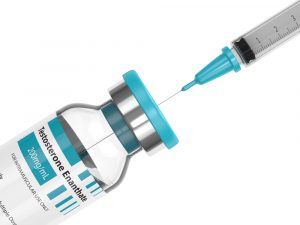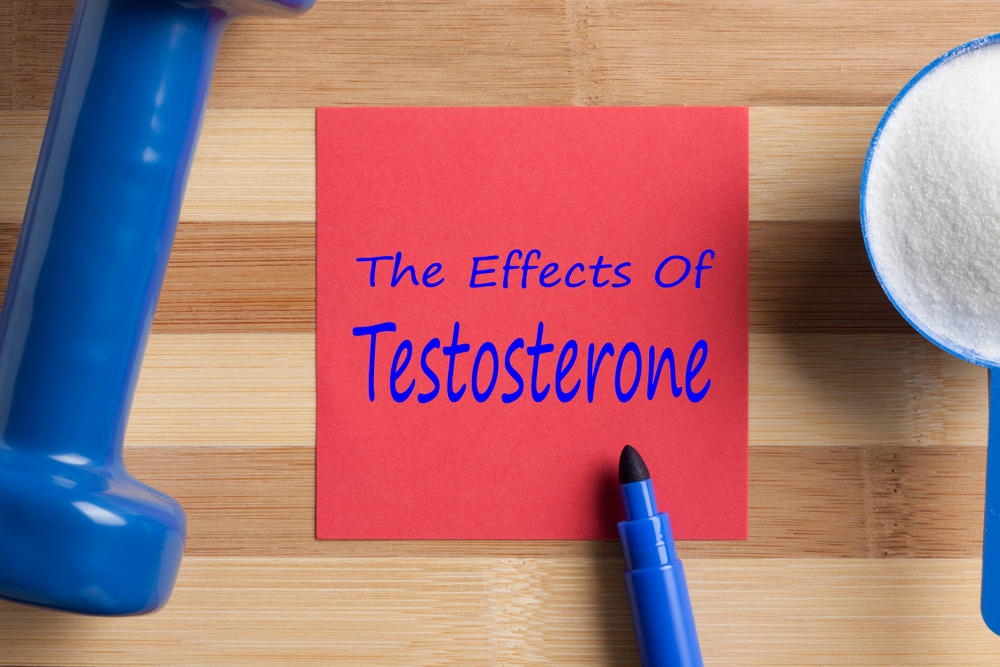A decline in testosterone levels is a natural occurrence in men that usually starts after age 30. From that point on, the body’s testosterone production decreases by about 1% each year. As a result, older men encounter numerous signs and symptoms that affect not only their sexual function but also their overall health.
What is the role of testosterone in men?
In men, testosterone is considered the primary sex hormone. It plays a role in many different bodily functions and processes from fetal stage to childhood, then from puberty to old age, such as:
Development of the male genitalia
Testosterone facilitates the growth and development of the penis and the testicles. If the body does not produce enough testosterone, there is a risk of small or underdeveloped genitals.
Sperm production
Testosterone aids in the production of sufficient amounts of good quality sperm. Men with low testosterone levels tend to have low sperm count and quality.
Sex drive
Testosterone promotes sex drive or libido. If testosterone levels are low, a man’s desire for sex also decreases.
Bone and muscle growth and development

Testosterone is instrumental in growing and developing strong bones and muscles. A shortage of testosterone may result to bone and muscle loss, and high risk of bone and muscle injuries and disorders.
Mood
Testosterone can influence mood. Usually, a decrease in testosterone causes higher levels of anxiety, stress, and depression.
Red blood cell count
Testosterone aids in the production of new red blood cells in the body. If testosterone is low, blood circulation and blood flow may be negatively impacted, and affect cardiovascular and erectile functions.
What are the normal testosterone levels in men?
Both men and women naturally produce testosterone in their bodies, but men do it at a much higher rate. Below are the values of normal testosterone levels in men per age group in nanograms per deciliter or ng/dL:
- From 0 to 5 months: 75 – 400
- From 6 months to 9 years: <7-20
- From 10 years to 11 years: <7-130
- From 12 years to 13 years: <7-800
- From 14 years: <7-1,200
- From 15 years to 16 years: 100-1,200
- From 17 years to 24 years: 300-1,200
- From 25 years to 34 years: 257 – 1,081
- From 35 years to 44 years: 201 – 1,009
- From 45 years to 54 years: 170 – 918
- 55 years+: 204 – 900
An average adult male has a normal testosterone level of about 270 to 1,070 ng/dL.
What is low testosterone?
Low testosterone is a condition in which your testosterone levels fall below the normal range.
Let us say you are a 25-year-old guy who undergoes a testosterone level test to know your testosterone levels. You receive your testosterone level test result, and it shows 200 ng/dL. Looking at the data above, men who are 25 years old to 34 years old should have 257 ng/dL to 1,081 ng/dL of testosterone in order for them to be considered normal. Because yours falls below that range, it means that you have low testosterone.
Should you take testosterone to boost your testosterone levels?
Men with low testosterone are advised to consult a doctor to treat their testosterone problem. Oftentimes, they are prescribed testosterone boosters or supplements to raise their testosterone levels and relieve the side effects as soon as possible.
These days, testosterone boosters come in a variety of forms, such as:

- Testosterone injections – These are administered by injecting into the skin to allow testosterone to enter the bloodstream.
- Testosterone gels – These are applied onto the skin to facilitate testosterone absorption.
- Testosterone patches – These are skin patches that contain testosterone, and they are usually applied on the skin — on the arm, neck, or shoulders — to increase testosterone in the body.
- Testosterone tablets – These are testosterone supplements that are taken orally.
- Testosterone pellets – These are tiny, about the five to eight millimeters, and they are administered by implanting them under the skin.
Testosterone treatment using these methods typically takes around 2 to 6 months. Make sure that you talk to your doctor and get a doctor’s prescription first, before starting any kind of testosterone treatment therapy.
What are the pros and cons of taking testosterone boosters?
Taking testosterone has several pros and some cons too.
If you follow doctor’s orders, your testosterone levels will increase and:
- Boost your energy levels and sex drive
- Improve your sperm count and quality
- Strengthen your bones and muscles
- Enhance your mood and mental health
- Regulate your body fat
- Facilitate body hair growth, increase in height and genital size (if you are going through puberty)
However, if you try to take testosterone on your own without medical supervision, or take more than the prescribed dosage, you will experience an increase in your testosterone levels too, but you may:
Have an increased risk of polycythemia
High testosterone levels in the body can cause high red blood cell production, resulting to thicker blood volume. This disease is known as polycythemia, and this can make you prone to a heart attack or stroke.
Have a messed-up brain
Too much testosterone in the body can bring chaos to your brain chemistry. It can make you restless, moody, stressed, anxious, irritable, and aggressive. It can also increase your risk of mental health illnesses, such as addiction and depression.
Stop your body from naturally producing testosterone
Taking testosterone supplements can cause your body to shut down its ability to produce testosterone. And, if you try to quit your testosterone treatment therapy, your body will not be able to go back to form, leaving you in a much worse situation than before.
Damage your vital organs
Many studies have found that testosterone supplements, especially if taken without a doctor’s prescription or in large doses, may cause long-term damage to your heart, liver, and kidneys. In addition, their findings show that these medications may do irreversible harm to the reproductive and endocrine systems too.







